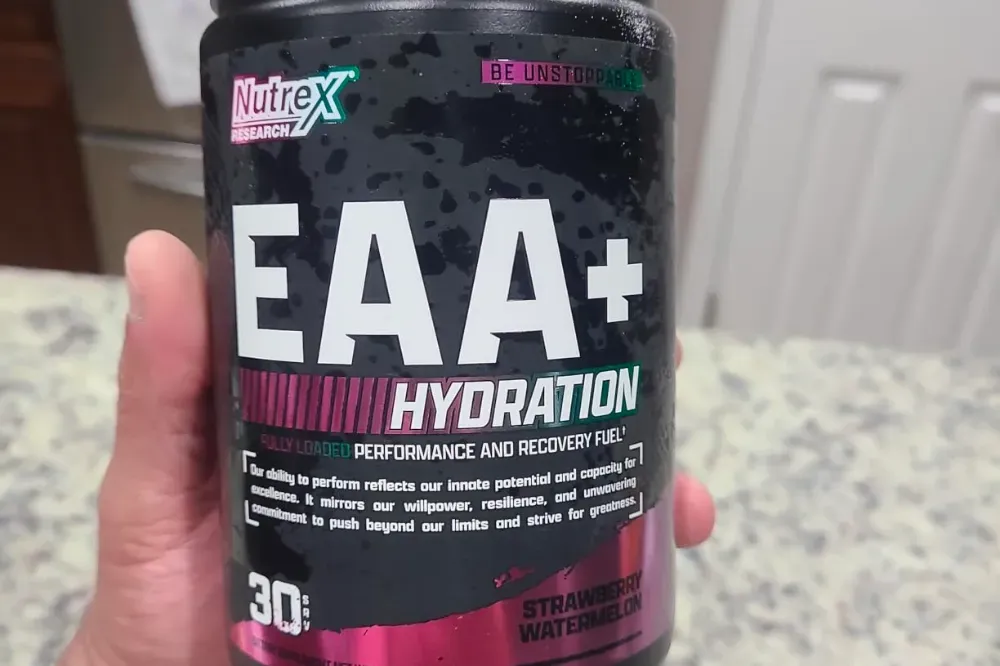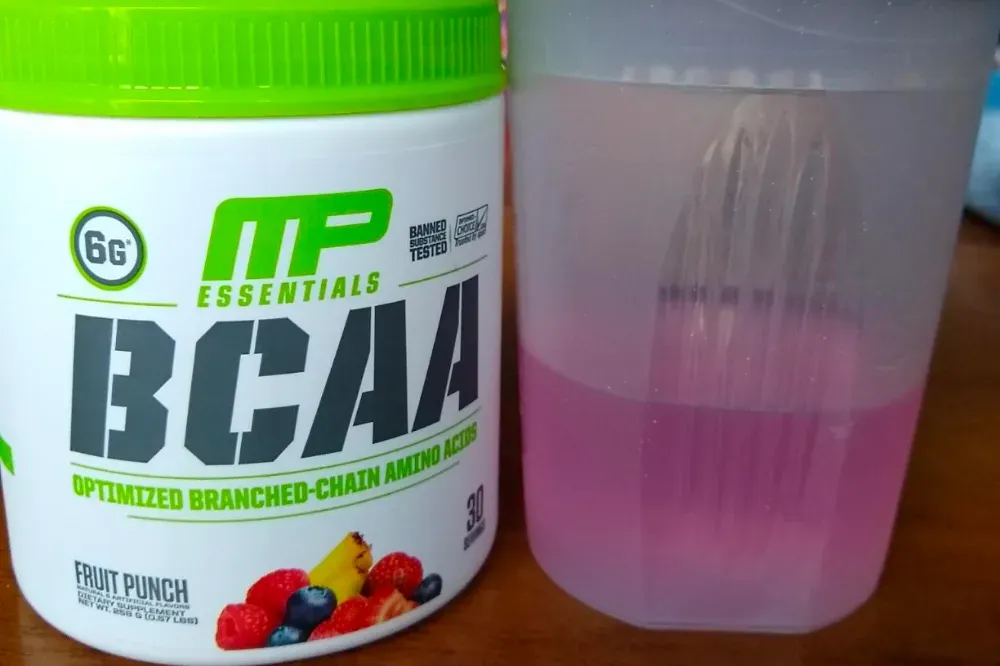In the world of fitness and nutrition, the debate of BCAA vs. EAA is ongoing. Both supplements play significant roles in muscle protein synthesis, muscle growth, and recovery, but which one is truly better? This article delves into the differences between EAAs and BCAAs, exploring their benefits, functions, and the science behind them.

What Are Amino Acids?
Amino acids are the building blocks of protein and are essential for various bodily functions, including muscle growth, repair, and overall health. There are 20 amino acids in total, nine of which are classified as essential amino acids (EAAs). The human body cannot synthesize these essential amino acids and must obtain them through diet or supplementation. Therefore, it is crucial to consume amino acids through dietary sources or supplements to ensure the body gets the necessary building blocks for proteins and muscles.
Essential Amino Acids (EAAs)
Essential Amino Acids (EAAs) consist of nine amino acids: leucine, isoleucine, valine, lysine, methionine, phenylalanine, threonine, tryptophan, and histidine. These amino acids are crucial for protein synthesis, muscle repair, and various other physiological functions. A complete amino acid profile, which includes all nine EAAs, is necessary for optimal muscle protein synthesis and overall health. Additionally, EAAs play a significant role in muscle building by creating a positive anabolic state that aids in muscle recovery and growth.

Branched-Chain Amino Acids (BCAAs)
Branched-Chain Amino Acids (BCAAs) are a subset of EAAs, consisting of three essential amino acids: leucine, isoleucine, and valine. BCAAs are known for their unique chemical structure, which allows them to be directly metabolized in skeletal muscle rather than the liver. This unique structure gives BCAAs a pivotal role in muscle protein synthesis and reducing muscle breakdown during exercise.

EAA vs. BCAA: The Main Differences
The primary difference between EAAs and BCAAs lies in their composition. While BCAAs include only three essential amino acids, EAAs encompass all nine essential amino acids needed for protein synthesis and muscle growth. This broader range of amino acids in EAAs provides a more comprehensive approach to supporting muscle health and overall bodily functions.
Muscle Protein Synthesis: EAAs vs. BCAAs
Stimulating Muscle Protein Synthesis: Both EAAs and BCAAs are involved in stimulating muscle protein synthesis, but EAAs are more effective due to their complete amino acid profile. Leucine, one of the three BCAAs, is particularly powerful in triggering the mTOR pathway, which is essential for muscle protein synthesis. However, without the other essential amino acids, the process of building new muscle is incomplete.
EAAs for Muscle Growth: EAAs provide all the building blocks necessary for muscle growth, repair, and maintenance. By consuming EAAs, you ensure that your body has all the essential amino acids needed to promote muscle protein synthesis and prevent muscle breakdown.

Muscle Recovery and Reducing Muscle Soreness
Post-Workout Muscle Soreness: BCAAs have been shown to reduce muscle soreness and aid in muscle recovery after intense workouts. This is due to their ability to decrease muscle breakdown and support muscle repair. However, EAAs may offer even greater benefits for muscle recovery, as they provide the full spectrum of amino acids required for optimal muscle repair and recovery.
Reducing Muscle Soreness with EAAs: EAAs are more effective in reducing muscle soreness because they support the entire process of muscle recovery. By providing all nine essential amino acids, EAAs help rebuild muscle tissue more efficiently, reducing delayed onset muscle soreness (DOMS) and promoting faster recovery.
EAAs and BCAAs in Protein Synthesis
The Role of Leucine: Leucine, a key BCAA, is essential for stimulating muscle protein synthesis. However, for optimal protein synthesis, leucine must be accompanied by the other essential amino acids found in EAAs. This makes EAAs a more complete solution for promoting muscle growth and recovery.
Protein Synthesis Response: The protein synthesis response is more significant with EAAs compared to BCAAs alone. This is because EAAs provide all the necessary components for building muscle tissue, making them more effective in supporting muscle mass and overall muscle health.

EAAs vs. BCAAs: Which Is Better for Muscle Growth?
Promoting Muscle Growth: While both EAAs and BCAAs are beneficial for muscle growth, EAAs have the upper hand due to their complete amino acid profile. EAAs provide all the essential amino acids needed to promote muscle growth, making them a better choice for those looking to build muscle mass and improve muscle strength.
Preventing Muscle Breakdown: EAAs are more effective in preventing muscle breakdown because they supply all the amino acids required to maintain muscle tissue. This is particularly important during periods of intense exercise or caloric restriction when muscle breakdown is more likely to occur.
Athletic Performance: EAAs vs. BCAAs
Supporting Athletic Performance: Both EAAs and BCAAs can enhance athletic performance by supporting muscle recovery, reducing muscle fatigue, and promoting muscle repair. However, EAAs offer a more comprehensive approach by providing all the essential amino acids needed for optimal performance.
Improving Muscle Recovery: EAAs are superior in improving muscle recovery due to their ability to supply the body with all the essential amino acids required for muscle repair and growth. This makes EAAs a better option for athletes and fitness enthusiasts looking to enhance their performance and recovery.

The Role of BCAAs in Muscle Health
Unique Chemical Structure: BCAAs have a unique chemical structure that allows them to be directly metabolized in skeletal muscle, providing a quick source of energy during exercise. This makes BCAAs particularly useful for endurance athletes and those engaging in prolonged physical activity.
BCAAs vs. EAAs: While BCAAs offer specific benefits for muscle health, they are not as comprehensive as EAAs. BCAAs can support muscle protein synthesis and reduce muscle soreness, but they lack the full range of essential amino acids required for complete muscle recovery and growth.
EAAs and BCAAs: Complementary or Competing?
BCAAs as a Subset of EAAs: It's important to note that BCAAs are a subset of EAAs. This means that when you consume EAAs, you are also getting the benefits of BCAAs, along with the additional six essential amino acids. This makes EAAs a more complete and effective supplement for overall muscle health.
Using EAAs and BCAAs Together: Some individuals may choose to use both EAAs and BCAAs together to maximize their benefits. This approach can be particularly effective for those with specific needs, such as athletes or individuals with dietary restrictions, who may require additional support for muscle recovery and growth.
EAA and BCAA Supplements: Which One Should You Choose?
EAA Supplements for Complete Support: If you're looking for a supplement that provides complete support for muscle growth, recovery, and overall health, EAA supplements are the better choice. They offer a full range of essential amino acids, making them more effective in promoting muscle protein synthesis and preventing muscle breakdown. Additionally, combining EAAs with whey protein can further enhance muscle growth and protein synthesis.
BCAA Supplements for Specific Needs: BCAA supplements may be beneficial for individuals who require additional support for reducing muscle soreness or improving endurance during exercise. However, for most people, EAAs provide a more comprehensive solution for overall muscle health.

The Best Time to Take EAAs and BCAAs
Timing for EAAs: The best time to take EAAs is either before or after a workout. Consuming EAAs before exercise can help fuel your muscles and prevent muscle breakdown, while taking them post-workout supports muscle recovery and growth.
Timing for BCAAs: BCAAs can be taken before, during, or after a workout. They are particularly effective when consumed during exercise, as they provide a quick source of energy and help reduce muscle fatigue.
FAQs: EAA vs. BCAA
What is the Difference Between EAAs and BCAAs?
EAAs, or Essential Amino Acids, consist of nine different amino acids, including the three BCAAs (Branched-Chain Amino Acids): leucine, isoleucine, and valine. While BCAAs specifically support muscle protein synthesis and energy production, EAAs offer a more comprehensive amino acid profile necessary for overall muscle gain and maintaining lean muscle mass.
Can I Take BCAAs Instead of EAAs?
While BCAAs are effective for stimulating muscle protein synthesis and improving energy levels during workouts, they don't provide the full spectrum of amino acids required for complete muscle recovery and growth. EAAs, on the other hand, include all the essential amino acids needed to support muscle gain and overall muscle health, making them a more complete option.
Do EAAs and BCAAs Contain Non-Essential Amino Acids?
No, EAAs and BCAAs do not contain non-essential amino acids. EAAs consist of the nine essential amino acids that the body cannot produce on its own, while BCAAs include just three of these. Non-essential amino acids are produced by the body and do not need to be obtained through diet or supplementation.
How Do EAAs and BCAAs Affect Energy Levels?
Both EAAs and BCAAs contribute to energy production during exercise. BCAAs are metabolized directly in the muscles, providing a quick energy source and reducing muscle fatigue. EAAs, while also contributing to energy levels, offer the additional benefit of supporting overall muscle recovery and maintenance, which can lead to sustained energy and improved endurance.
Which is Better for Building Lean Muscle Mass: EAAs or BCAAs?
EAAs are generally better for building lean muscle mass because they provide all nine essential amino acids necessary for muscle protein synthesis. BCAAs, while beneficial, only include three of these essential amino acids, which may limit their effectiveness in supporting comprehensive muscle gain and recovery.
Are Amino Acid Supplements Necessary for Muscle Gain?
Amino acid supplements like EAAs and BCAAs can be beneficial for muscle gain, especially for individuals who struggle to meet their protein needs through diet alone. EAAs are particularly effective because they contain all the essential amino acids required for muscle protein synthesis, making them an excellent choice for those looking to maximize their muscle-building potential.
Can I Use Both EAAs and BCAAs for Better Results?
Yes, using both EAAs and BCAAs can provide complementary benefits. BCAAs can be taken during workouts for immediate energy production and reduced muscle fatigue, while EAAs can be consumed post-workout to support muscle recovery and promote lean muscle mass. Together, they offer a comprehensive approach to muscle health and performance.

Conclusion: Is EAA Better than BCAA?
In conclusion, while both EAAs and BCAAs have their place in a fitness regimen, EAAs are generally the better option for most individuals. They provide all the essential amino acids needed for optimal muscle growth, recovery, and overall health. BCAAs, on the other hand, offer specific benefits, particularly for reducing muscle soreness and supporting endurance. Ultimately, the choice between EAAs and BCAAs depends on your specific needs and fitness goals, but for comprehensive muscle support, EAAs are the superior choice.












